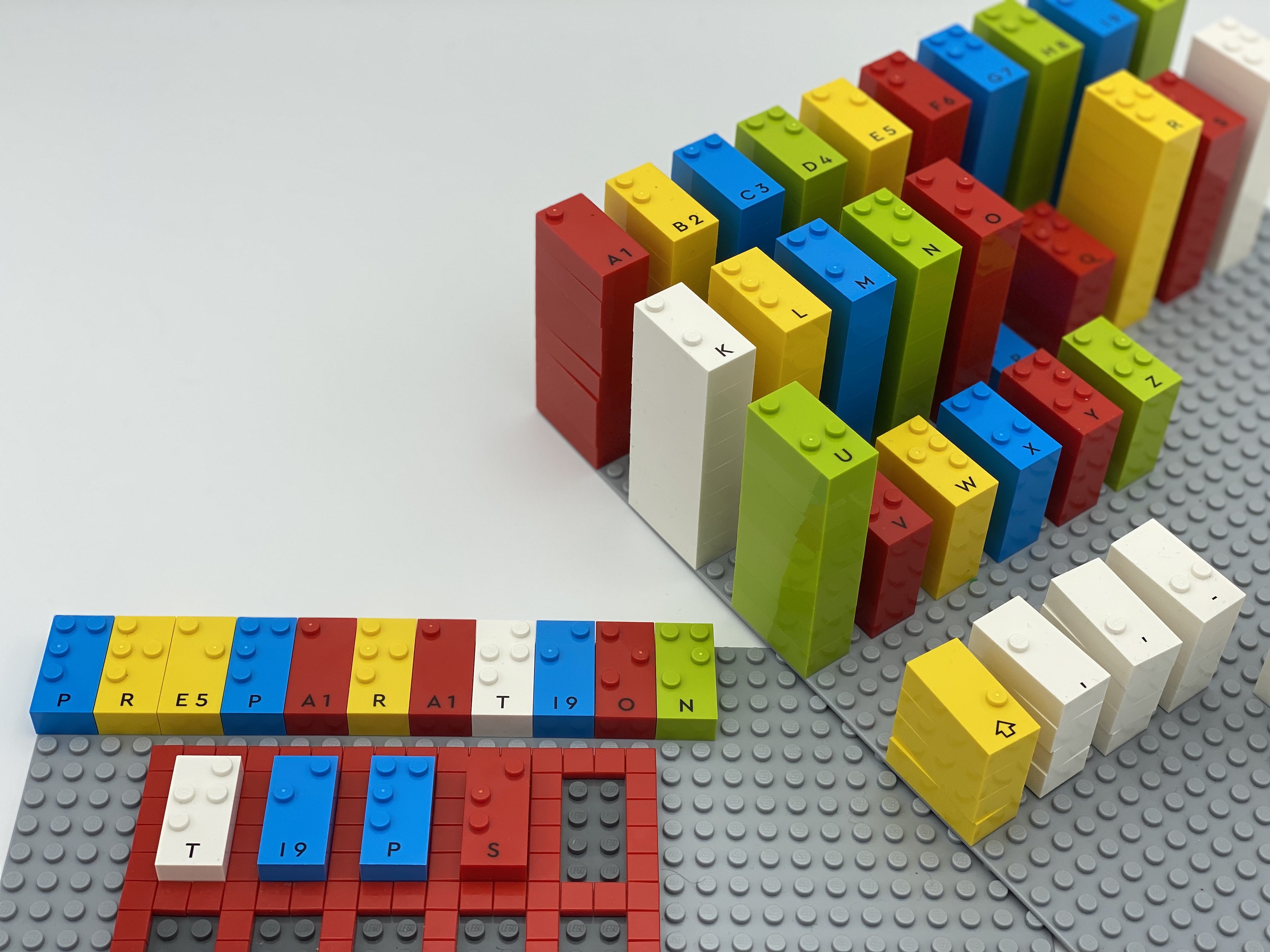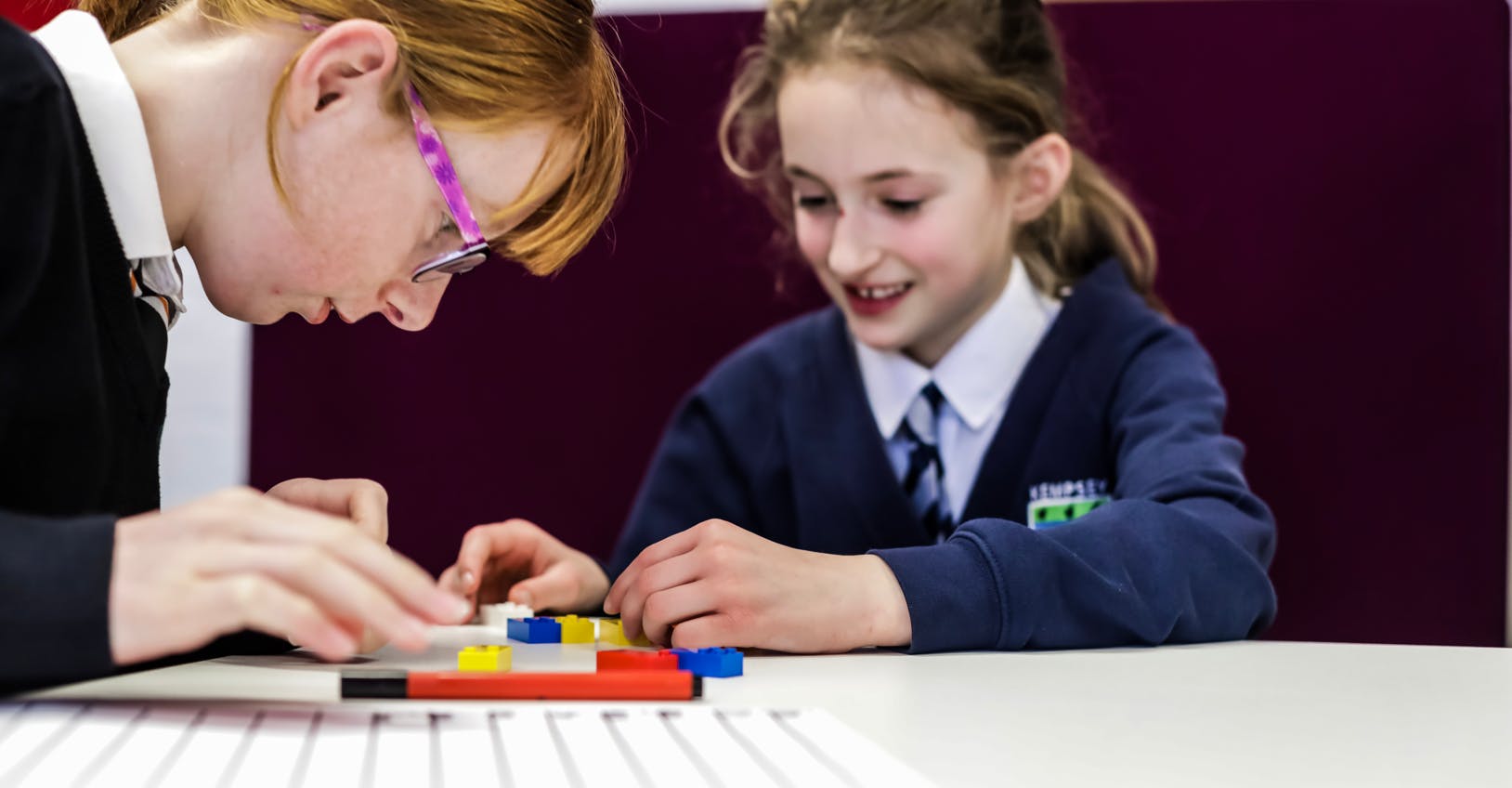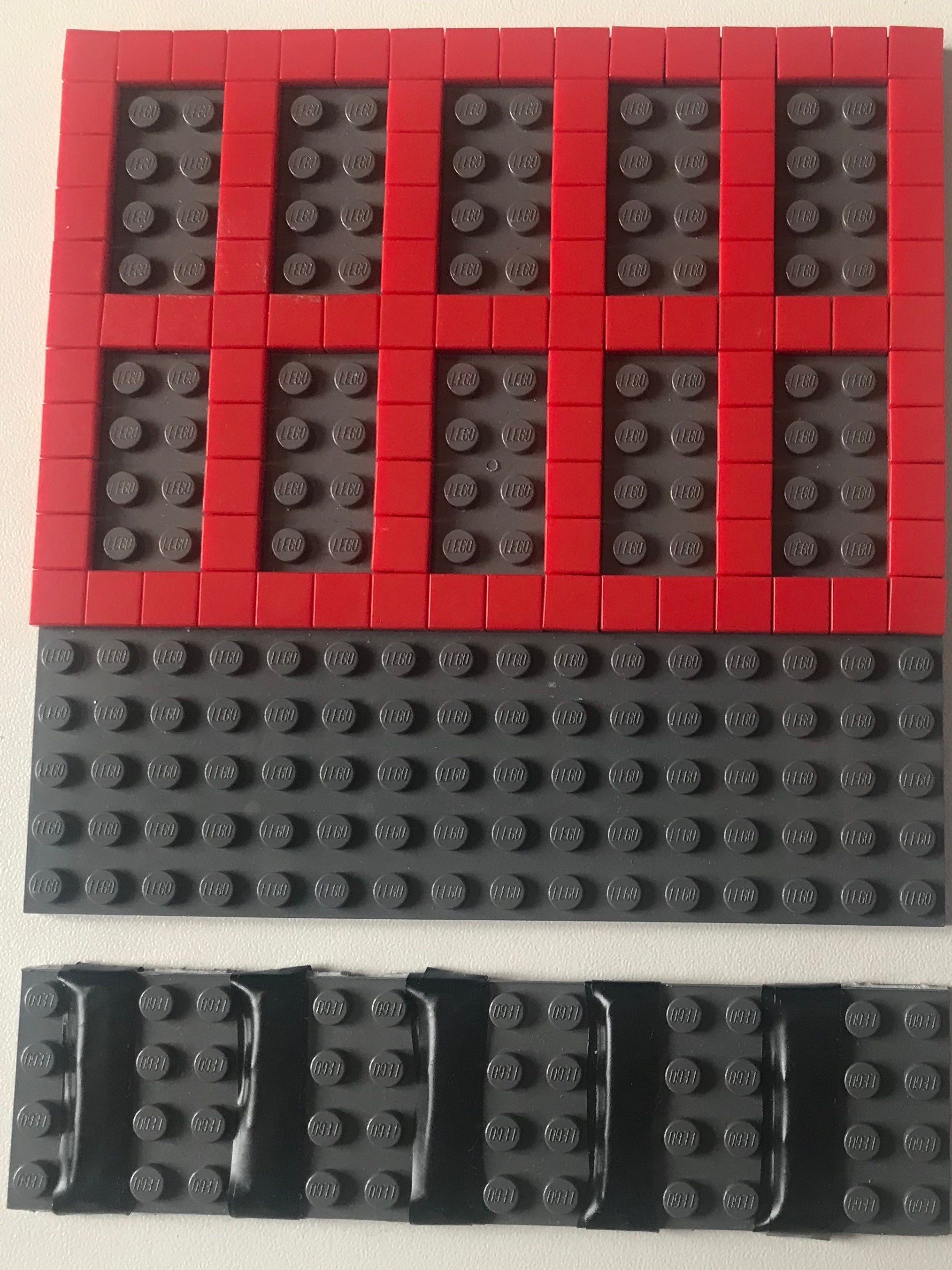LEGO® Braille Bricks - get preparation tips and tricks

Ideas to sort the bricks
Finding the right brick from the box can take some time and might not be a useful part of the learning activity.
Use a sorting system and preparation to avoid wasting valuable teaching time. Some children may also need guidance to separate the bricks and distinguish them from each other.
Make alphabetic towers of bricks on one base plate and use this as a quick access to alphabetically sorted bricks
Invent a sorting system – e.g. use small bags, boxes, or make your own compartments out of cardboard
Sort by color, series of 10 letters (A to J, K to T), vowels and consonants, etc.
Make a transportable kit, e.g. using a binder. Glue a base plate on a perforated plastic sheet, put some bricks in a perforated pencil pouch and put them in a binder
Prepare activities by pre-selecting relevant bricks in a small bowl, box, tray or the base plate.

Ideas to prepare the base plate
Use storage plates by preparing bricks already in the right position for a given activity on additional base plates
Prepare layout of the base plates by compartmentalizing tactile spaces e.g. with tape or 1x1 flat tiles – or use classic bricks to make separations, walls, boxes, etc.
Use other LEGO base plate sizes, i.e. 4x6, 4x8, 4x12 size plates
Use a brick as a tactile mark, e.g. in a top corner of the base plate
Numbers can be used in the activities without number signs to avoid too long equations and too many physical manipulations. Alternatively, put a number sign in the top left of the base plate to indicate number activities
Consider using a large base plate to activate a pair or group collectively, i.e. centrally placed with one side for each child
